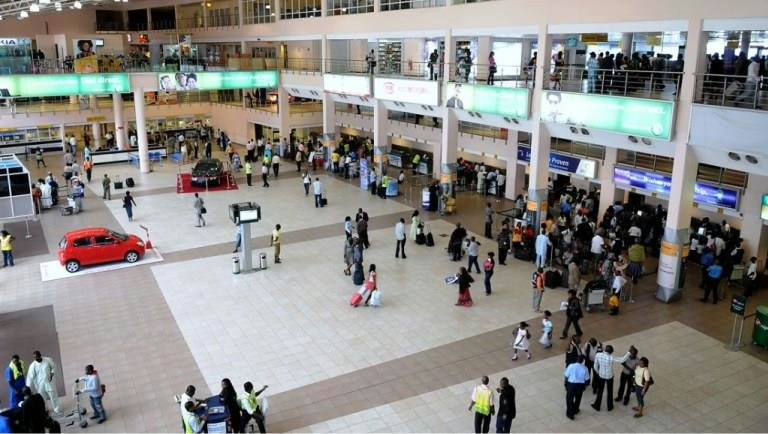Starting January 1, 2026, airfares in Nigeria are expected to increase due to the enforcement of a new Tax Act that introduces import duties and Value Added Tax (VAT) on aircraft, aircraft components, and airline tickets.
This legislation mandates that domestic airlines will be liable for import duties and VAT on commercial aircraft, engines, spare parts, and ticket sales.
Experts within the aviation sector caution that these additional taxes will elevate operational expenses for airlines, costs that will likely be transferred to consumers through more expensive flight tickets.
Published officially by the federal government, the Tax Act also permits taxpayers to settle levies related to foreign currency transactions in naira, using the current exchange rate from the official foreign exchange market.
According to reports, the Tax Reform Act will take effect in 2026, with the Airline Operators of Nigeria (AON) warning that its implementation could devastate the country’s aviation industry.
Dr. Allen Onyema, AON’s vice president, asserted that the Act could cause local airlines to collapse within just two days of enforcement.
He emphasized that Nigerian airlines are already heavily taxed, and imposing further levies would push the sector to the brink of failure.
“I am unsure who included the clause requiring airlines to pay Customs duty and 7.5% VAT on imported aircraft, spare parts, and even tickets,” Onyema remarked.
Nonetheless, during a Business Webinar hosted by Aviation & Allied Business in partnership with the Federal Inland Revenue Service (FIRS), themed ‘Nigeria Tax Act (2025) & The Aviation Industry: Aviation Sector Enlightenment Initiative,’ the federal government confirmed that the full implementation of the new Tax Reforms Act is irreversible and will commence on January 1, 2026.
Nkechi Umegakwe, assistant director at the Nigeria Revenue Service (formerly FIRS), highlighted that the government conducted thorough assessments before enacting the new tax laws.
She stressed that airline operators and related aviation businesses are now required to pay VAT on all their services and operations.
Currently, airlines enjoy exemptions from import duties and VAT on commercial aircraft, engines, spare parts, and tickets, but these exemptions will be removed starting in 2026.
Umegakwe explained that the reforms aim to boost federal revenue, reduce business costs through VAT recovery, enhance cash flow, and improve compliance via digital invoicing and monitoring.
She added that the reforms harmonize various taxes into a streamlined system, eliminating inconsistencies and simplifying tax regulations.
“VAT is a consumption tax borne by the final consumer, not the supplier. Once the reforms take effect, airlines must pay VAT on imported aircraft, engines, spare parts, and related items,” she said.
“However, airlines can request VAT refunds within 30 days if the taxes are recoverable. The key change is that airlines will no longer be exempt from VAT payments.”
Concerns Over Conflicts with International Agreements
Dr. Samson Fatokun, IATA’s West and Central Africa area manager, criticized the government for contradictory policies.
He pointed out that airlines and aviation operators are already burdened with multiple fees and questioned the rationale behind adding more taxes.
Fatokun cited the existing five percent Ticket Sales Charge/Cargo Sales Charge (TSC/CSC) as a significant levy that inflates ticket prices and deters potential travelers.
He recalled that in December 2024, President Bola Tinubu, as ECOWAS chairman, signed a treaty with member states prohibiting taxes on air passengers and cargo, effective January 1, 2026.
Additionally, Nigeria, as a full member of the International Civil Aviation Organisation (ICAO), is bound by agreements that forbid VAT on air transportation, emphasizing that aviation is a cost-recovery industry rather than a revenue-generating one.
“Aviation operates globally under treaties that Nigeria has ratified. The tax authority must recognize these international commitments. Reintroducing VAT on airlines violates these agreements,” Fatokun stated.
Aviation specialist Capt. Samuel Caulcrik echoed these concerns, noting that the sector is already strained by numerous taxes and levies.
He warned that imposing both the 7.5% VAT and the TSC/CSC would amount to double taxation, urging the government to reconsider.
“All funding in aviation comes from passengers and shippers. Additional taxes will stifle the industry,” Caulcrik said.
He added, “If the five percent TSC/CSC has already reduced passenger numbers, adding 7.5% VAT will further discourage travelers and harm industry performance.”
Nkechi Onyenso, managing director of Pathfinder Securities, called for ongoing dialogue between the government and aviation stakeholders.
She acknowledged that foreign exchange scarcity and multiple taxes negatively affect the sector but recognized some benefits in the new Tax Reforms Act, advocating for continued engagement.
Enacted on June 26, 2025, the reforms are encapsulated in four laws: the Nigeria Tax Act, 2025 (NTA); Nigeria Tax Administration Act, 2025 (NTAA); Nigeria Revenue Service (Establishment) Act, 2025 (NRSEA); and Joint Revenue Board (Establishment) Act, 2025 (JRBEA).
The NTA and NTAA will be effective from January 1, 2026, while the NRSEA and JRBEA commenced on June 26, 2025, to facilitate preparations for full rollout.
This means the Federal Inland Revenue Service (FIRS) will officially transition to the Nigeria Revenue Service (NRS) as the centralized tax authority starting June 2025.
Key Provisions of the New Tax Legislation
The NTAA introduces full tax exemption for small businesses with annual revenues under N100 million and fixed assets below N250 million.
Large corporations may benefit from a proposed corporate income tax reduction from 30% to 25%, contingent on a presidential directive advised by the National Economic Council.
The law also sets high thresholds for top-up taxes: N50 billion in revenue for local companies and €750 million (or equivalent) for multinationals.
Investors in priority sectors will receive a 5% annual tax credit to encourage capital inflows and support economic diversification.
Government officials describe these reforms as a decisive move to simplify Nigeria’s tax system, foster business expansion, and enhance revenue collection.
Earlier this year, Finance Minister and Coordinating Minister of the Economy, Mr. Wale Edun, stated the reforms aim to modernize tax administration, ease burdens on small enterprises, and create a more competitive environment for large firms while ensuring sufficient revenue for development.
Mr. Edun also announced that the contentious 5% fuel surcharge, often viewed as a fuel tax, will not be implemented immediately.
Tax specialists suggest that allowing naira payments for foreign currency-linked taxes could ease compliance challenges and stabilize exchange rates.
The government anticipates that this approach will reduce dollarization and bolster confidence in the local currency.
Overall, the new tax framework reflects a strategic balance between revenue generation and economic competitiveness, aligning with President Bola Tinubu’s broader agenda to reposition Nigeria’s economy for sustainable growth.

















